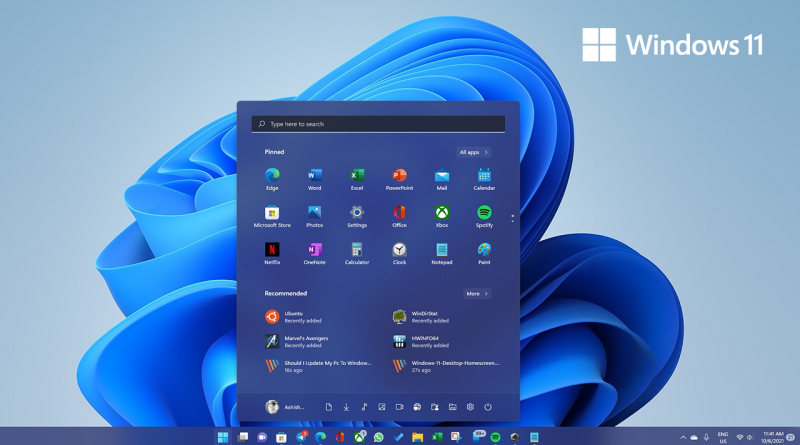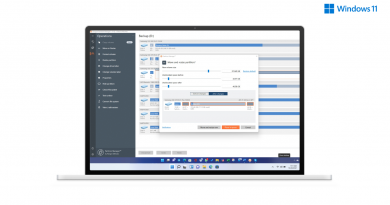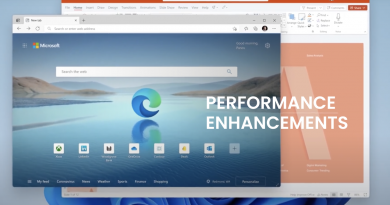Should I Update My PC To Windows 11?
Since the launch and introduction of Windows 11, users have been in a dilemma as to whether to update their PC to the latest version of Windows or just keep rocking the older versions. The main reason behind this dilemma is because every time a new version of Windows appears, it gets a mixed opinion. While Windows 11 has received a solid score for most of its use, there will always be some who would face issues. Here in this article, we will try to solve this dilemma and form a firm opinion on whether you should update your PC to Windows 11.
Windows 11, What’s New?
Windows 11 has some significant aesthetic changes over Windows 10. One of the most noticeable, you’ll see is the Start Menu, which is now at the center of the screen. The most awaited Dark Mode is here too. Tablet mode was never a strong point of Windows, and that was one central area where Windows was lagging behind the MacOS by a considerable margin, but in Windows 11, it seems like the gap is much narrower now.
The users very much appreciate customizations, and finally, Windows 11 offers a ton of customizations to give your PC a personalized look by your preference. The Windows 10 horrendous Xbox gaming bar has also been removed and replaced with the better Game Pass App. Windows 11 is now the most secure Windows OS compared to the previous versions as it offers much better security to the end-users.
Difference between Windows 10 and Windows 11
The design and user interface is the first thing that you’ll notice after switching to Windows 11. To say the least, Windows 11 has a Mac-like UI which is not a bad thing at all. The start menu is now aligned with the taskbar at the center of the screen. In fact, it has been done so beautifully that Windows 10 looks like an outdated version. Those who have used Windows 7 are going to appreciate Windows 11 a lot!
Windows 11 is now offering much better support to the android app. However, there is a catch. The support is coming via Amazon Appstore. Though previously, in Windows 10, there were several different ways by which you could use android apps but now it is even better. Windows 11 has better virtual desktop support. Previously it was challenging to do so. The most impressive aspect of this new version is the enhanced support of touchscreen, voice, and pen support.
Along with this, Windows 11 also offers enhanced gaming improvements because of Direct Storage Access, Hardware-accelerated GPU scheduling, and Auto HDR ensures you get the best gaming experience when playing the best titles available on the PC.
Windows 11 also offers other features such as Prioritizing Apps and Processes, Longer Battery Life, Instant Resume from Sleep, Reduced Disk Footprint, Less Updates & Lighter Updates, DCH Drivers, TPM 2.0, and Software Enhancements.
Should you Upgrade To Windows 11? How Much Will It Cost You?
Similar to when Windows 10 was announced, Windows 8.1 and Windows 7 received a free upgrade. Windows 11 will also be a free upgrade to the existing users of Windows 10. Hence there will be no cost for the current users. Windows 11 will also be available on new PCs pre-installed. However, the Windows 11 product keys will go on sale in 2022, and there is no specific price hinted at as of yet.
Windows 11 will start rolling out by 5th October, so if you’re someone who is willing to upgrade, then it is undoubtedly the right time for you to do that. Windows 11 does offer better performance over the previous version, but it is not necessarily essential for you to upgrade as of yet. Windows 10 is still a very trustworthy companion that we can rely upon.
There are two most significant reasons you can consider if you want to update. The first one is that you’re a heavy multi-tasker, as Windows 11 offers much better multitasking abilities than Windows 10. Or you just wish for aesthetically better Windows. Now, choices are independent, and some users might prefer the older aesthetic version of Windows. Generally speaking, Windows 11 is a better-looking OS than its previous ones. It is very refreshing.
Whenever a new OS or software is launched, it has some bugs and inconsistencies improved by other updates over a while. Windows 11 is nothing different, and it will also have some issues or bugs that’ll eventually get better with time. So upgrade to Windows 11 if you want to try out the new features or wait until all the issues or bugs are fixed and then install the improved version of Windows 11. The choice is yours.
Is Your PC or Laptop-compatible With Windows 11?
When Windows 11 was first announced, there were many rumors regarding the compatibility of Windows 11 on some devices. To some extent, those rumors were true. The bitter truth is, if your PC is more than four years old, then there’s a very high possibility that your device isn’t officially supported with Windows 11. It can be a deciding factor or a deal-breaker for you if you fall into such a category.
The most controversial requirement that Microsoft announced at Windows 11 launch is the TPM 2.0, which is only available on specific new devices, including the UEFI secure boot. A supporting processor is all you need to run Windows 11 on your device.
You can download the Windows PC Health Check app and check if your PC is compatible. The application will give you clear reasons if there is a compatibility issue.
Frequently Asked Questions ( FAQs)
When Does The Official Support For Windows 10 End?
The support for our beloved Windows 10 is ending on 14th October 2025 by Microsoft. It will complete its ten-year run by that time. After that time, Microsoft will stop issuing any kind of updates for Windows 10.
Can We Still Use Windows 10 After The Official Support Ends?
Yes, you can use Windows 10 after its end of term, but you’ll be more vulnerable to security threats and viruses. But Windows will still run on your PC.
Conclusion
In the end, it all boils down to what you truly desire. If you want more performance and do more multitasking, Windows 11 is a perfect choice. It is more aesthetically appealing as well. But if you’re going to stick with the more traditional way of using Windows, then Windows 10 is still your best bet. It all depends on your choice and preferences.




